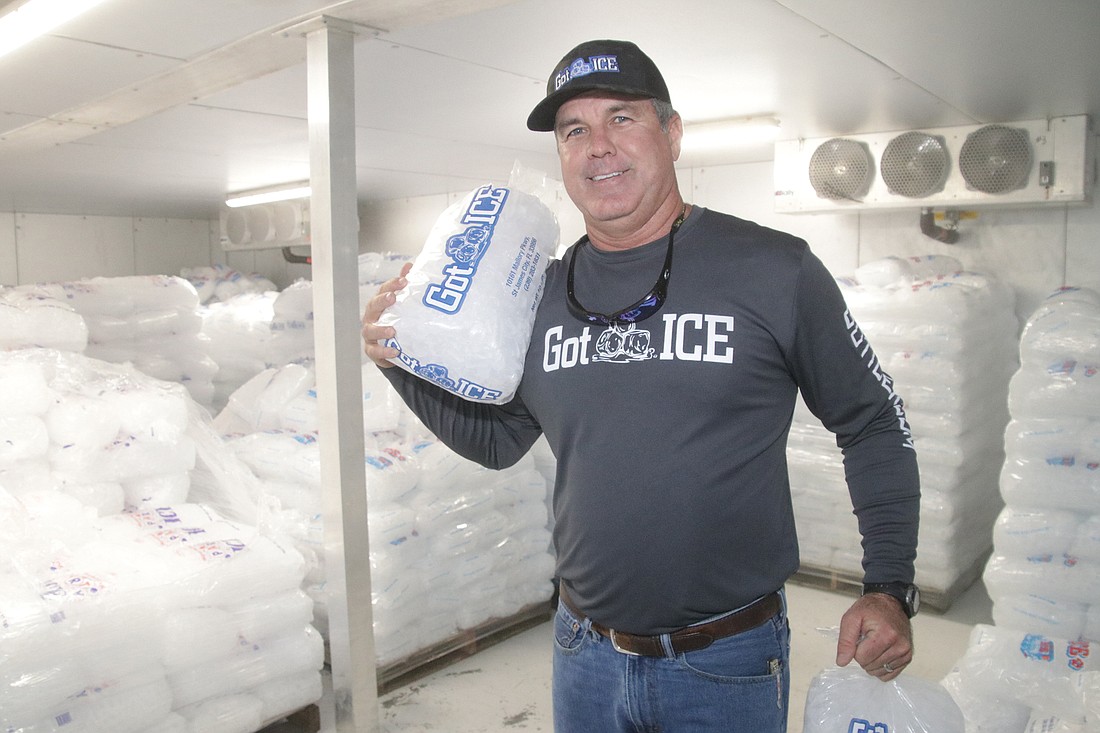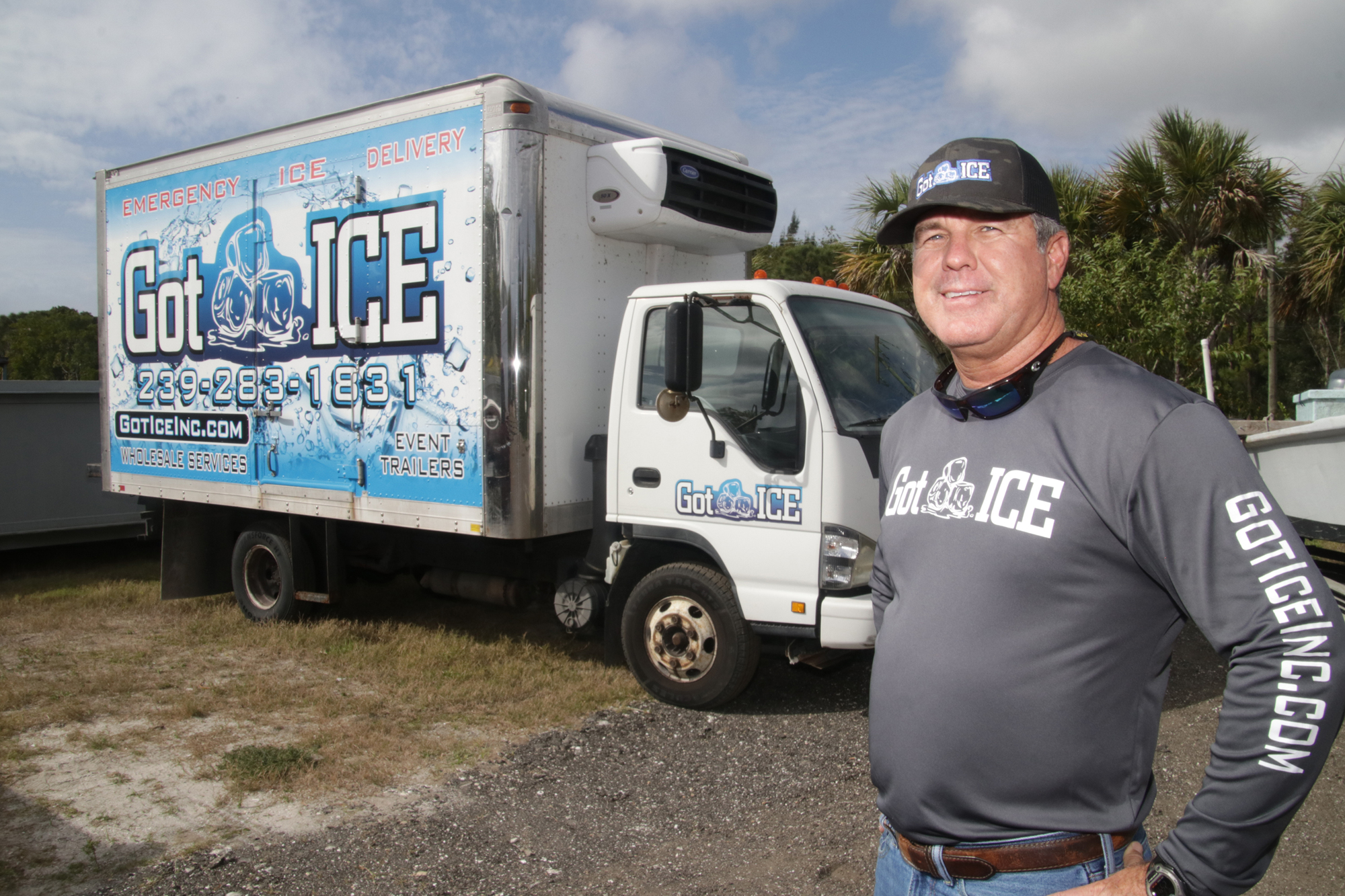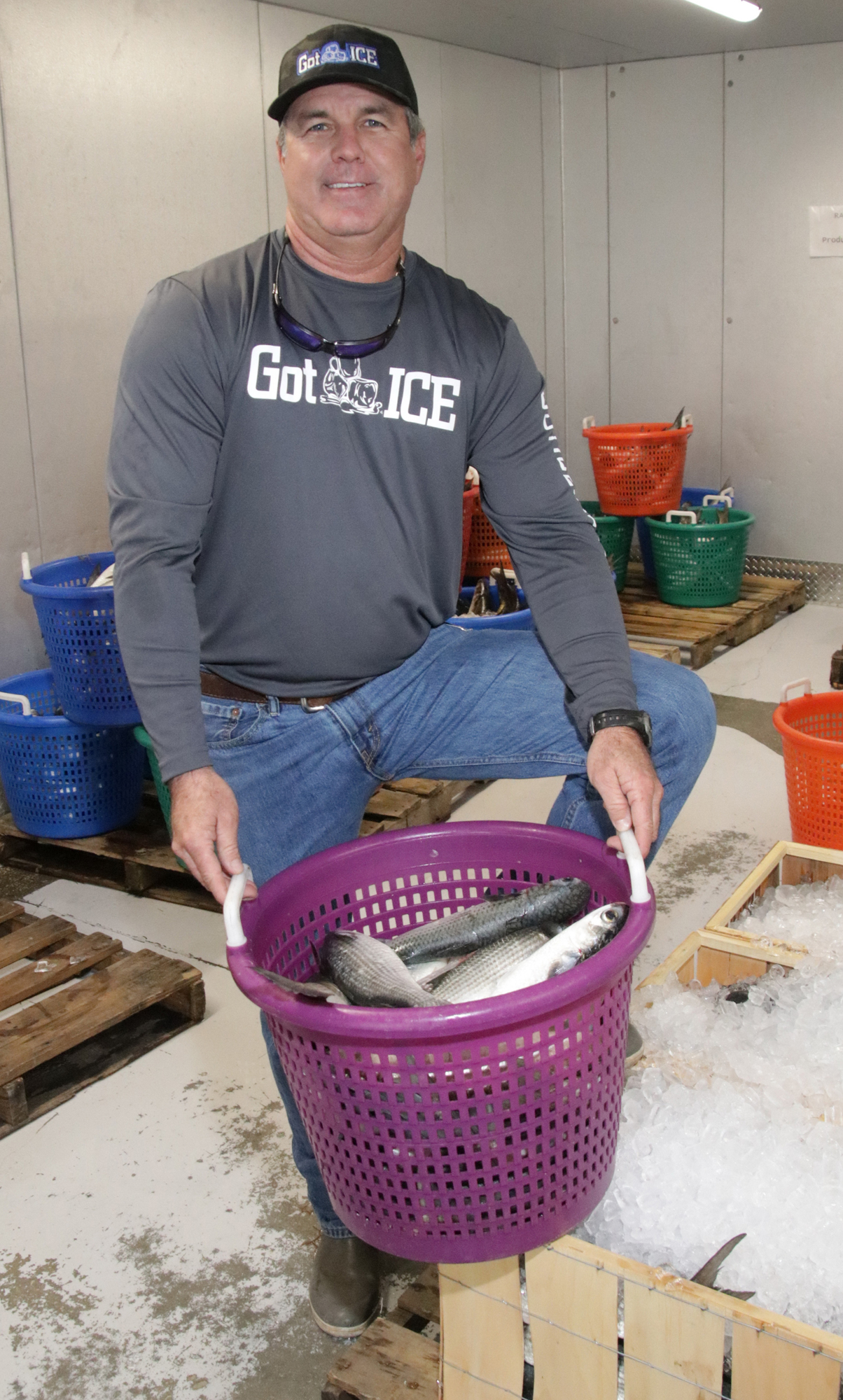- November 23, 2024
-
-
Loading

Loading

It’s a stone cold fact that family fisheries in Southwest Florida have been struggling.

A 1995 ban on gill net fishing threw cold water on fisheries along coastal waters. More lately, it's been the scourge of red tide, increasing in intensity the past three years, that have iced fish-focused firms.
All told, these issues put Barnhill Fisheries in St. James City on Lee County's Pine Island in a bind, forcing Eddie Barnhill Jr., and his wife, Jamie, to make a choice: head to north Florida to seek new opportunities or find something else to do on Pine Island, where Barnhills have lived and fished for three generations.
They decided to stay, but with a twist: They sold their boats, 8,000 of their stone crab traps along with their state-issued certificates, and their fish processing equipment. They used the money to start Got Ice, which launched in January after a five-month delay in delivery of some equipment. “We sold everything we had in the fishing and stone crab business," says Barnhill, "and invested in ice.”
Barnhill’s capital investment in ice making machinery, an auger system, bagging equipment, a forklift, a dozen retail boxes and an event trailer came to about $180,000. He had enough left over from the sale of the fishing assets to float the new business for about three months. The five-month delay put the business behind schedule when it finally opened.
But now Barnhill is working to build the ice business the same way he sustained Barnhill Fisheries during the down times.
“I’m not saying I’m never going to fish again. I'm getting into the ice business to support my fishing habit.” Eddie Barnhill Jr.
“You just keep grinding,” says the 43-year-old Barnhill. “The thing about the fishing business is you can't plan it, you can't gauge it. If it's here it's here, if it’s not it’s not. Fishermen are very resilient. You have bad years and that’s just the way it is, but you keep grinding and the next year you make up for it.”
Barnhill says there was no time to make up for his latest bout with red tide. The company went from hauling in 60,000 pounds of stone crabs a year to just 800 pounds. The mullet season yielded similar results. At its peak, Barnhill and his father fished 15,000 traps in the gulf.
The time had come to cut their losses. Unlike many other fishing families, Barnhill had a head start on reinvention, with his 5,000-square-foot warehouse on Mallory Parkway in St. James City.
“I was fortunate that I have the building, I have the freezer space from the wholesale fish business and I have the refrigerated trucks,” says Barnhill. “I converted the fish processing space into my ice bagging room. All I had to do was buy the equipment and install it. If I had to start from scratch, forget about it.”

Barnhill’s strategy is to capitalize on the family’s name, lengthy history in the area and reputation by providing superior customer service. That includes 24-hour emergency delivery to bars and restaurants should their ice-making equipment run low or break down, which Barnhill says is a frequent occurrence.
“People often think of emergency ice for events like hurricanes, but being able to get ice delivered immediately is a year-round need,” Barnhill says. “A commercial ice machine on site at a marina or restaurant can run low during peak times of year or break down at any time, and that’s where we come in.”
Got Ice can also offer the efficiency of delivery by boat, a key advantage for remote island and coastal locations difficult to reach quickly by road. The company can deliver to Upper Captiva, which is accessible only by boat, and cut in half an hour-long road trip to Captiva Island by sea.
The minimum emergency delivery is 700 pounds. Barnhill’s initial retail focus is on marinas where he has established relationships. The wholesale price for a 10-pound bag is $1.75. Got Ice can make 10,000 pounds per day with current ice making equipment in place, and the rest of the line is set up to produce 20,000 pounds per day. Storage capacity is 40,000 pounds, which can also be expanded when necessary.
Barnhill is exploring opening a small storefront in a strategic location to offer bagged ice at wholesale to landscapers, contractors and others who regularly purchase ice on their way to job sites. If successful, he would open more.
Barnhill remains in the fish wholesale business as well, purchasing catches from local commercial fishermen and distributing to stores and restaurants. “That’s their livelihood,” he says.
And the ice business, he adds, doesn’t rely on a good stone crab and mullet seasons — or water conditions that can ruin both.
“If the wind is blowing 50 or if it's pouring rain,” says Barnhill, “you can still make ice.”